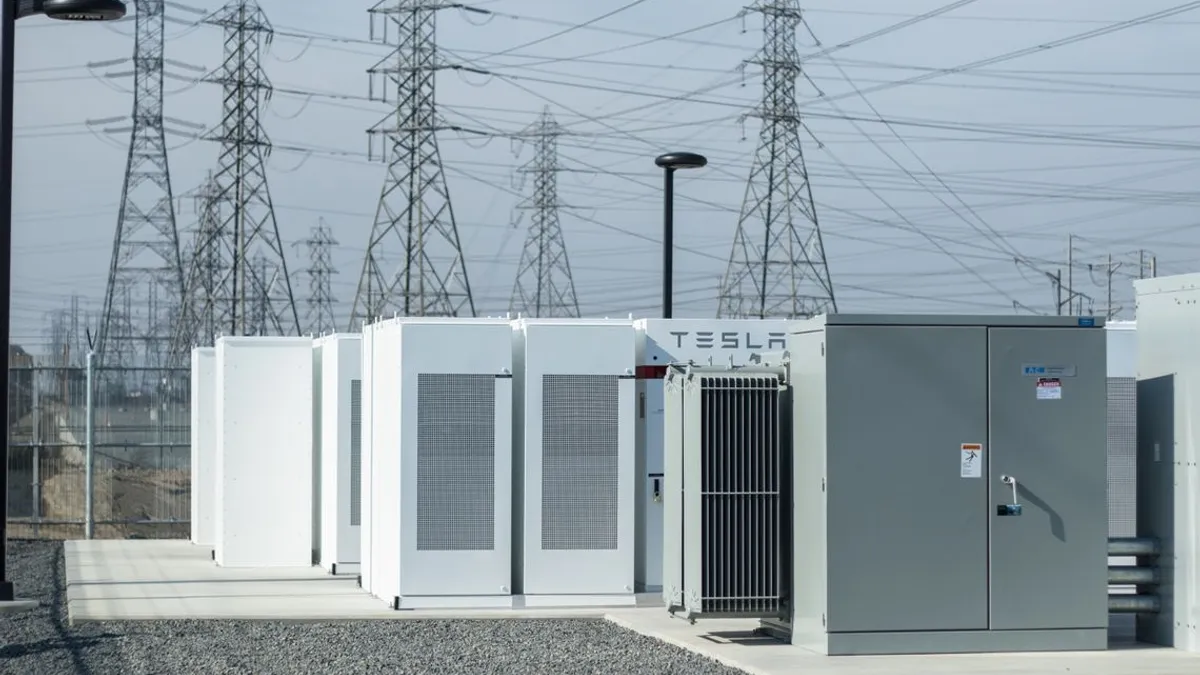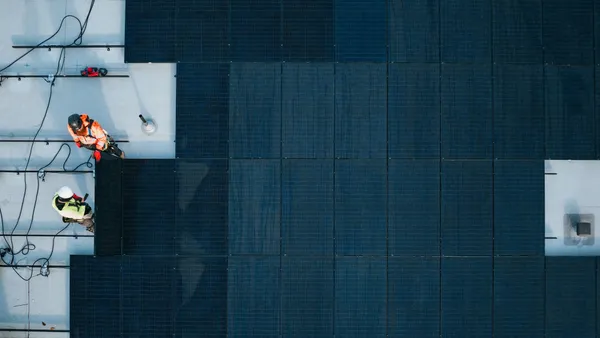Dive Brief:
- If the Trump administration follows through on its threats and raises tariffs on Chinese imports of lithium-ion batteries and inverters to 25%, the installed price for a four-hour duration battery would increase by about 15%, according to an analysis by S&P Global Platts Analytics.
- The Office of the U.S. Trade Representative (USTR) included lithium-ion batteries and static converters, which are both used in storage systems, on its May 13 list of items earmarked for a tariff increase.
- According to the U.S. International Trade Commission (USITC), the U.S. imported more than $1 billion worth of lithium-ion batteries from China in 2017.
Dive Insight:
The stalled trade negotiations between the United States and China could put a strain on America's burgeoning energy storage market. President Donald Trump has used the threat of additional tariffs to get Beijing to the negotiating table. But the tactic has yet to produce the desired results.
On May 10, U.S. Trade Representative Robert Lighthizer announced the administration's decision to increase tariffs on $200 billion worth of Chinese goods — including lithium-ion batteries and inverters — from 10% to 25%. While the latest tariff hike is not expected to stop the growth of the U.S. energy storage market, it's expected to notably increase installation costs.
"The impact of the tariff would vary project by project, but we estimate a 25% tariff on both lithium-ion batteries and inverter[s] could increase the installed prices for a four-hour duration battery by about 15%," Felix Maire, clean energy and storage senior analyst at S&P Global Platts Analytics, said in a June 6 release.
It's a significant price increase considering that lithium-ion batteries account for 40% to 60% of the total installed cost of a standalone battery storage system in the U.S., Maire added.
A recent USTR notice delayed the start date of the 25% tariff from June 1 to June 15, giving U.S. importers a further two weeks to get their goods into the country under the current tariff level of 10%. After the latest round of trade negations between the world's two largest economies broke down in late May, Trump announced that tariffs on China could be raised by another $300 billion if necessary.
China, South Korea and Japan are the biggest exporters of lithium-ion batteries to the U.S., according to figures from the USITC. Total global lithium cell manufacturing is expected to reach 316 GWh in 2019, S&P Global Platts reported, citing Yayoi Sekine, energy storage analyst at BloombergNEF. The majority of that manufacturing capacity, 73%, is located in China, followed by the U.S. (12%), South Korea (7%) and Europe (4%).
In 2017, the U.S. imported $987 million worth of lithium-ion batteries from China, according to the USITC. The figure excludes batteries used in electric cars, which amounted to $54 million in the same year. South Korea and Japan followed with $519 million and $440 million, respectively.
During Q1 of this year, the U.S. energy storage market set a growth record, deploying 148.8 MW, a 232% increase from Q1 2018, and a 6% jump from Q4 2018, according to the latest Wood Mackenzie U.S. Energy Storage Monitor.














